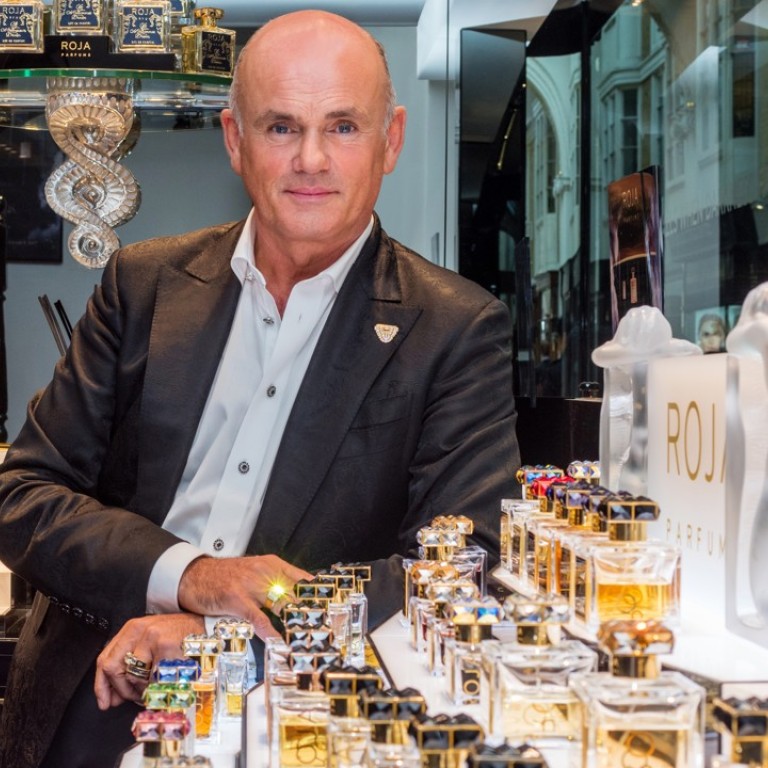
Asian interest in luxury fragrances growing, niche perfumer says
Roja Dove is founder of Roja Parfums – the most popular perfume shop at Harrods in London. He explains why Asian customers have been slow to embrace scents and talks about the continuing rise of niche fragrances
At a time when the UK has been in the news for all the wrong reasons (messy Brexit talks, poisoned Russian spies on its soil, a crumbling NHS) and needs all the good publicity it can get, the country’s PR machine went into overdrive last month in Hong Kong.
The British Fashion Council and the Great Festival of Innovation brought key figures from Britain’s luxury and design industries to town to drum up support for all things British. One of the keynote speakers of the event was perfumer Roja Dove, founder of Roja Parfums and an international ambassador for Britain’s Great campaign.
Japanese beauty brands reassert themselves amid K-beauty buzz
The perfumer has been an inside player in the rarefied realm of luxury fragrances for decades, but he founded his brand only in 2011. After working for French perfumer Guerlain he moved on to create bespoke perfumes – completely tailor-made concoctions that can cost tens of thousands of US dollars.
While the made-to-measure service still plays an important role in the company, Roja Parfums is now a fully fledged fragrance and lifestyle brand, with the most popular perfume shop at Harrods (it outsells all other fragrance shops there) and a boutique in London’s Burlington Arcade.
Dove’s knowledge of the history of perfume and the fragrance industry is encyclopaedic, and ranges from the complicated steps involved in distilling oud from the trunks of trees to the connections between glove manufacturers and perfume making in 17th century France.
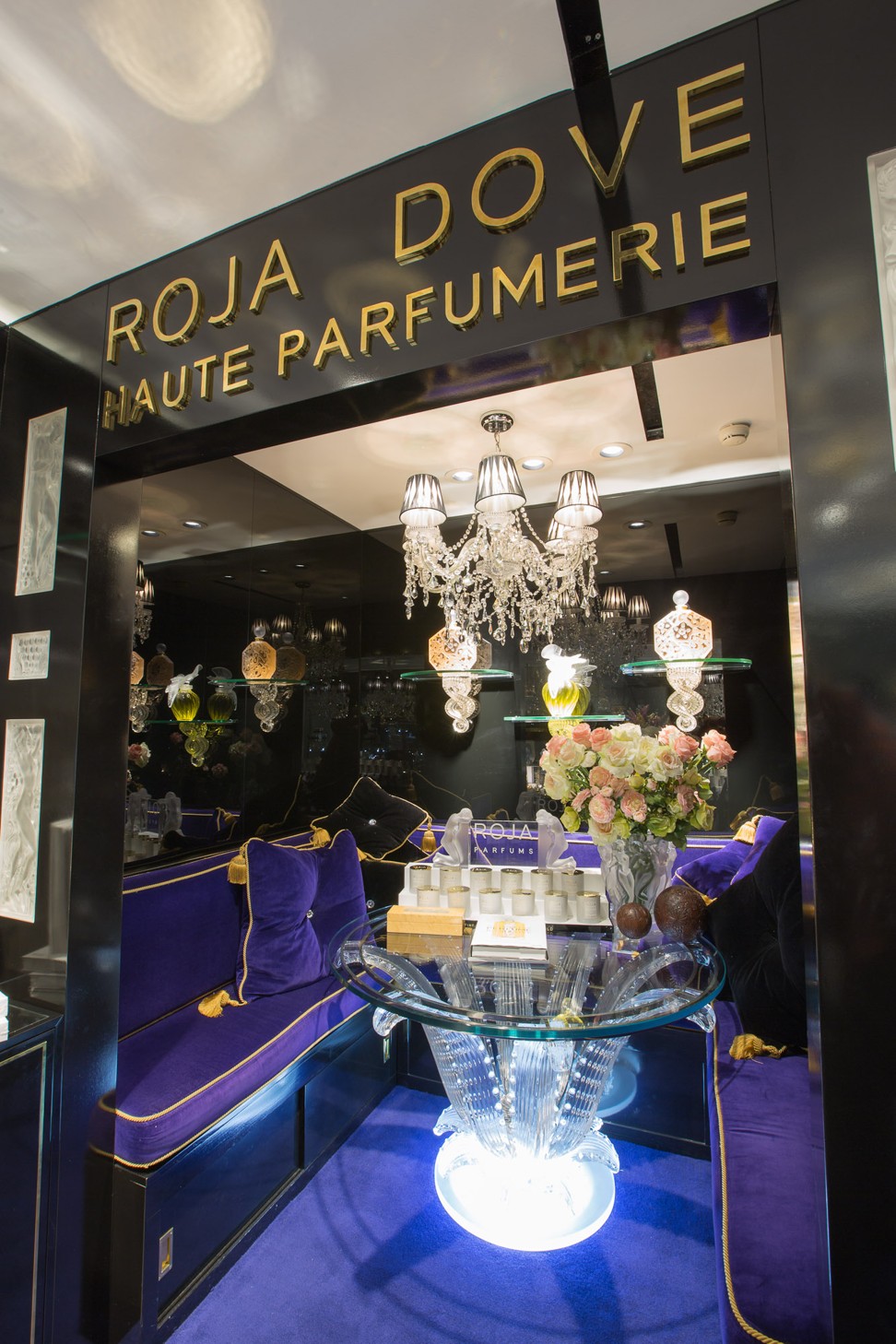
In spite of his success, both on home turf and around the world (his products are available in nearly 200 shops in 42 countries), Dove has yet to crack the Asian market, which is hardly surprising. Unlike the West or the Middle East, Asia has never been very receptive to scents, focusing instead on skincare and make-up.
Consumers globally are turning their backs on [the] mainstream while niche, speciality shops are the future of perfumery because in the end you want to meet experts, unlike at department stores. I call them the spray and pray brigade
“Japan, for example, is very interesting as it’s against their culture to smell of anything, whether it’s a good or bad smell,” Dove explains when we meet him at the Upper House in Admiralty after his talk at the Asia Society. “One of the first brands to go there was Saint Laurent with Baby Doll, a perfume made just for the market that smelled very sweet and light.
“Ironically, in China they have a very long tradition of perfume use but recent history erased that. They don’t have any cultural references for it because of communism, so now it’s almost like an age of discovery for them.
“It’s the same for skin in Asia. It’s all about not being shiny, not having anything at all.
“In the Middle East, on the contrary, they believe they’re giving you a gift when you smell a perfume on someone. 100ml of perfume will last them like a week.”
Dove says, though, that many of his clients in London come from China and believes that, with time, and as exposure grows, Asia will also come to embrace fragrances, even niche ones like his creations.
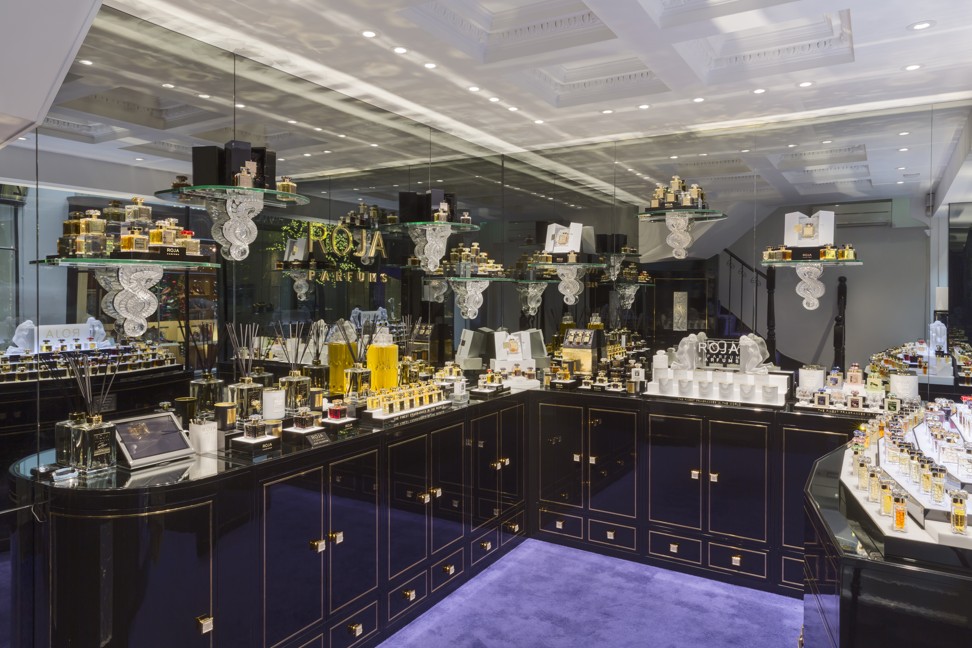
The world of niche fragrances has experienced huge growth in recent years, with many of them becoming de facto mainstream names, especially after being acquired by large groups such as L’Oreal. This is what happened to Guerlain, which was acquired by LVMH when Dove was at the brand, leading to his departure after almost two decades.
His ebullient spirit and fun attitude (he is an amazing conversationalist and an hour spent talking with him revealed lots of fun anecdotes from his jet-setting life) would seem to set him apart from your average CEO, but Dove is also a savvy businessman.
Why Western fashion brands fail in China, and tips on succeeding in a country where millennial consumers are taking over
“Guerlain was a long time ago and I loved the brand before working for them and I had nothing in my home that wasn’t from them and I always imagined that I would work for them one day, but then it was bought by a corporation and it wasn’t a family company any more,” Dove says. “I realised that I’m not a corporate animal and that one person can’t change a corporation, nor could the corporation change me, so I decided to leave.”
“The reality is that, unlike some people, I know that I am mortal and I’m very pragmatic about it,” he says. “I launched my fragrance line because I wanted to leave a legacy, so in the end I have a responsibility to find a perfumer who will carry on because if one day I drop down dead I want to insure that my olfactory style is intact.
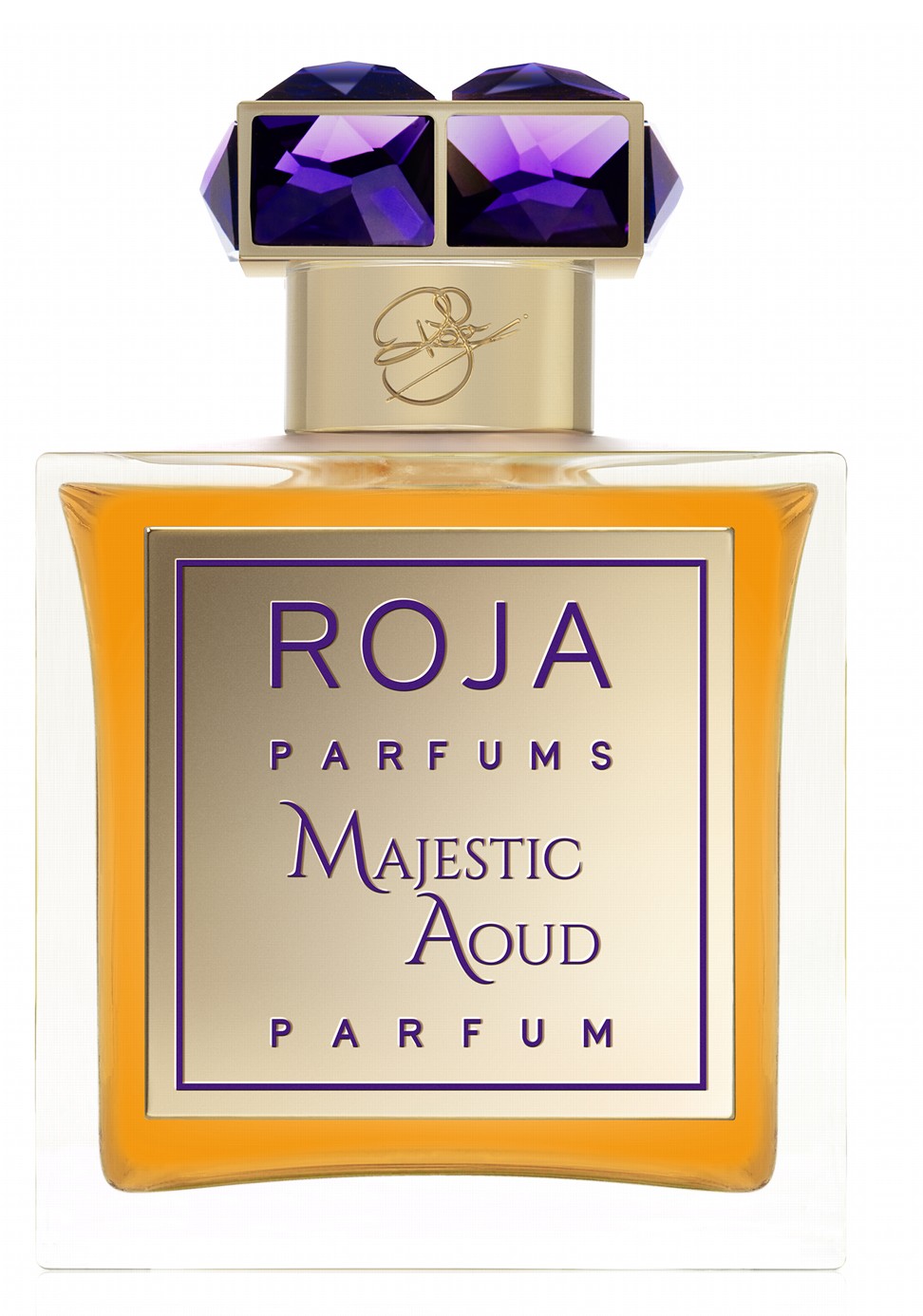
“Eventually, I have no doubt that I will sell the company because I want to make sure that what I have created doesn’t die, but I don’t imagine not being involved in it. It’s more to secure the future rather than just wanting to sell it.”
So how does someone who is not a “corporate animal” feel about the oversaturated fragrance market, where anyone from teenage celebrities to fashion designers can launch a perfume?
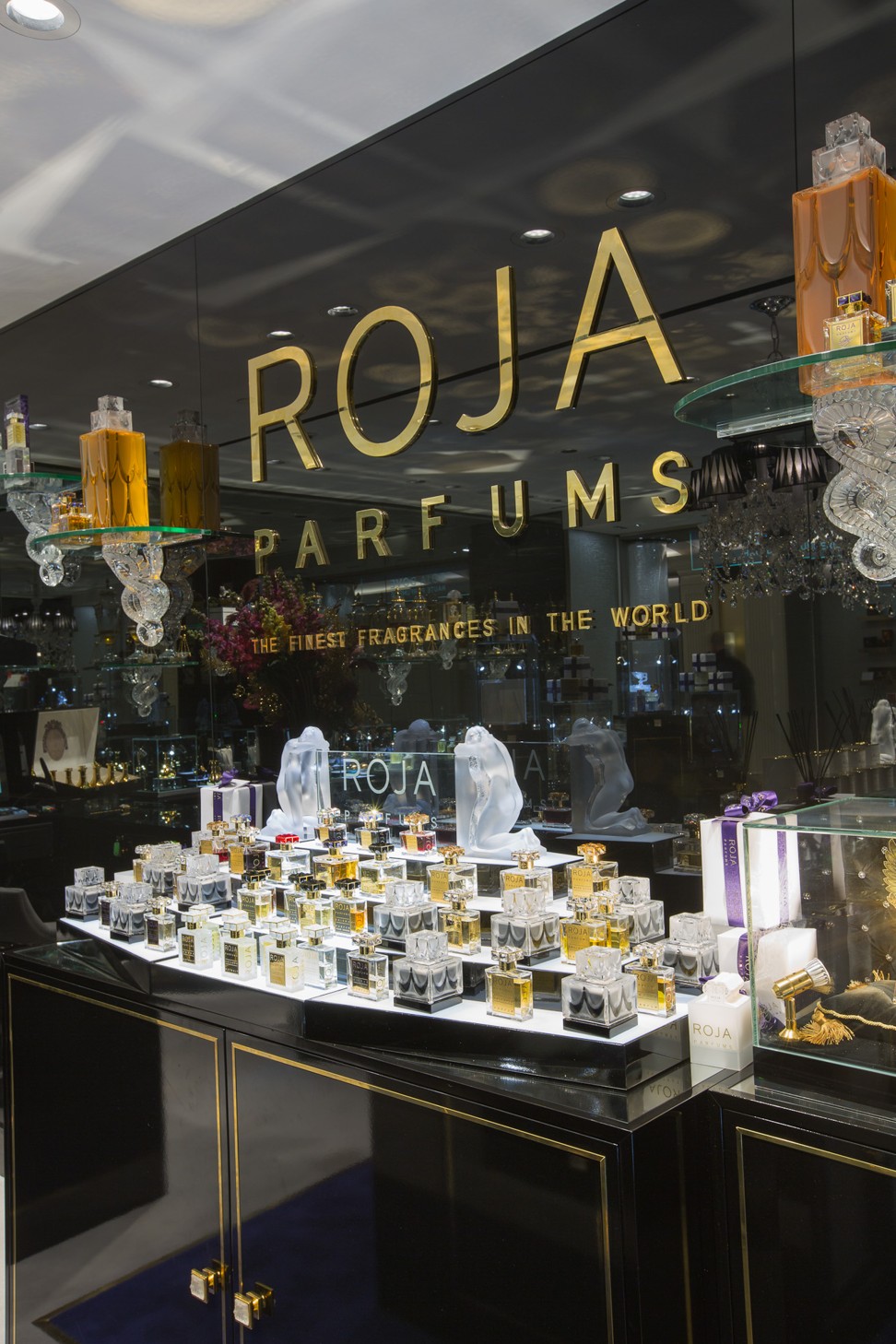
While he admits that some actually do a good job (he finds what Tom Ford has done with his perfume range “fascinating”, and has words of praise for Frederic Malle for exposing the world at large to the importance of previously unknown perfumers), Dove is also seeing a change in the industry, one that bodes well for brands like his own.
Daybreak approaches: Louis Vuitton to hit high notes with new haute perfume, Le Jour se Lève
“Consumers globally are turning their backs on [the] mainstream while niche, speciality shops are the future of perfumery because in the end you want to meet experts, unlike at department stores. I call them the spray and pray brigade,” he says, referring to the sales people trying to entice shoppers in beauty halls. “It’s not being rude to the staff but to the companies that do that.”
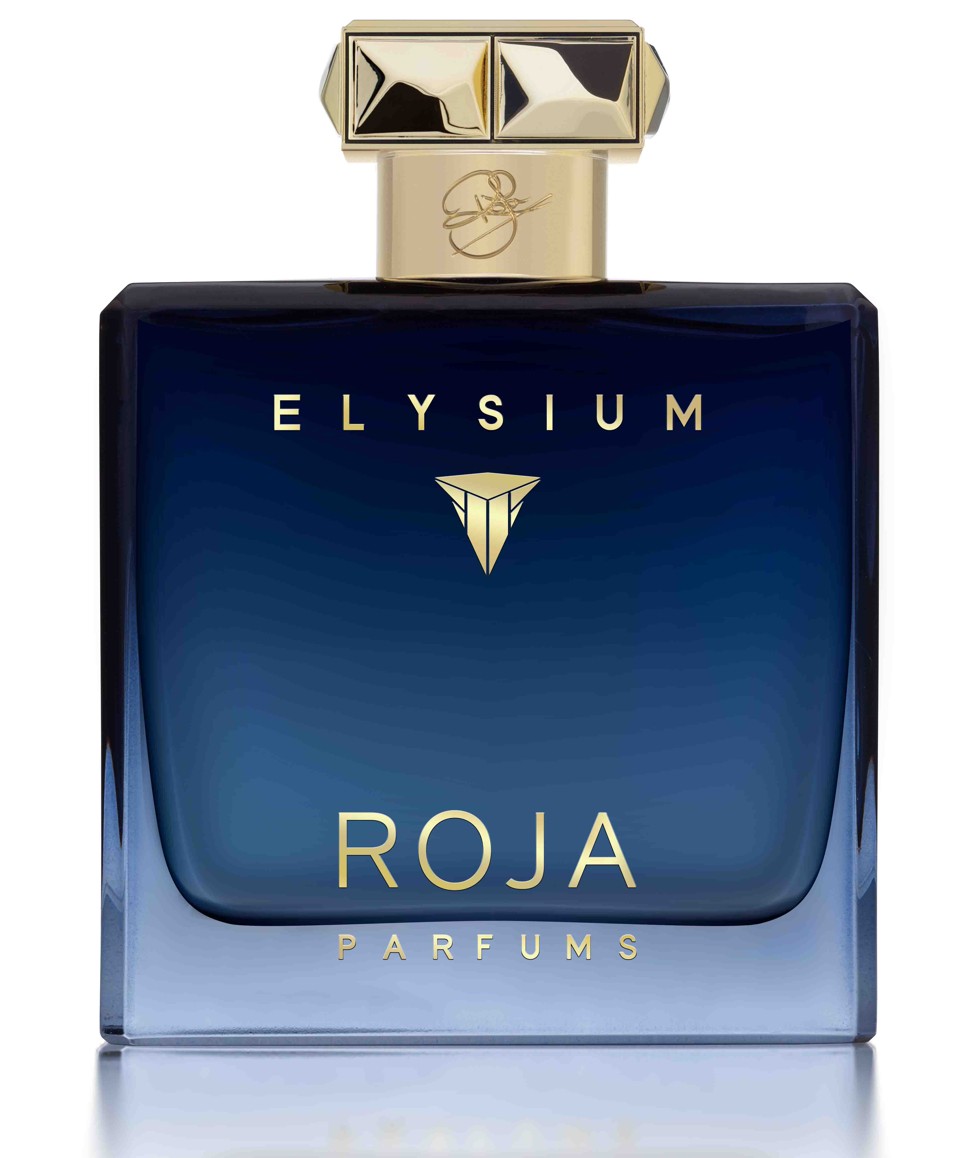
For Dove, work and life are one and the same, and his enthusiasm when talking about his made-to-measure perfumes is evident, even though his company has grown much bigger now.
“I really love how I get to know the client when I do bespoke,” he says. “Some of the things they tell me, they don’t tell many other people because fragrance is all about memory.
“Some people don’t like to open up but others find it very cathartic. I’ve made some great friends making bespoke fragrances.”

